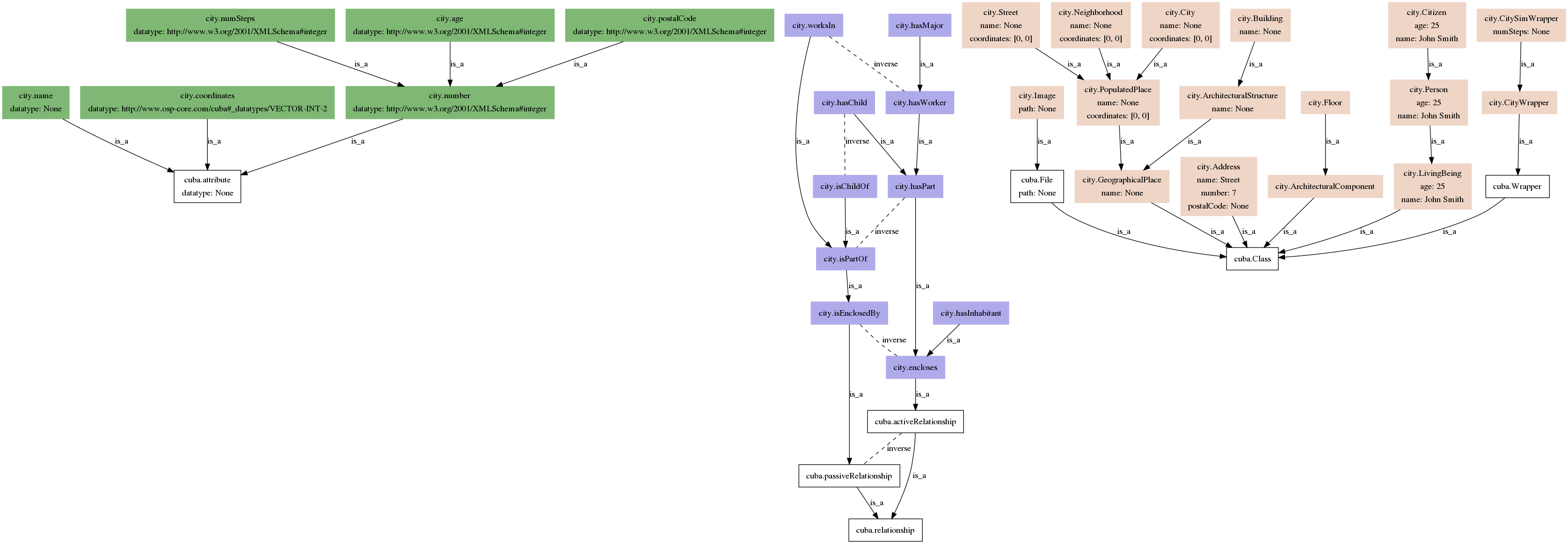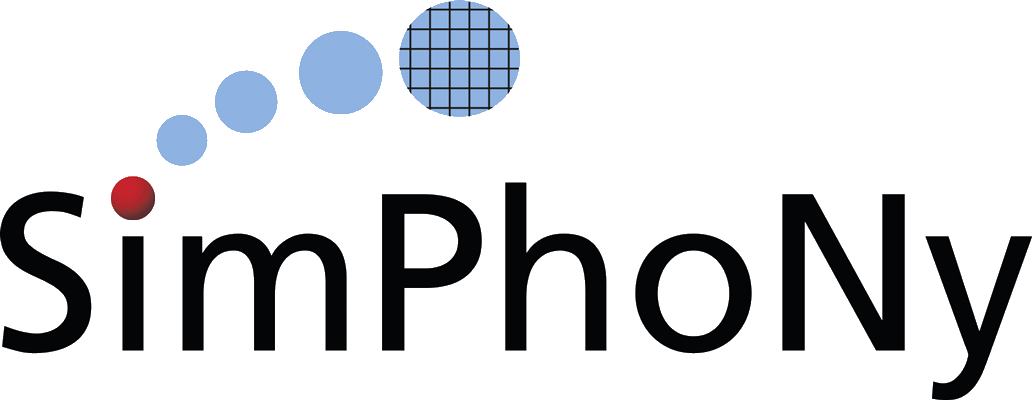Included ontologies
Contents
Included ontologies#
To use an ontology, you first have to add it to SimPhoNy by installing an ontology package. Ontology packages are YAML configuration files that, in addition to pointing to the actual ontology file, also define extra metadata.
We bundle a few of these files with SimPhoNy to enable rapid installation of common, well-known ontologies. The included ontologies, together with their domains of application, are listed below.
Elementary Multiperspective Material Ontology (EMMO) - Applied sciences
Dublin Core Metadata Initiative (DCMI) - Metadata description
Data Catalog Vocabulary (DCAT) - Data catalogue information
Friend of a Friend (FOAF) - People and information on the web
The PROV Ontology (PROV-O) - Provenance information
Simple Knowledge Organization System (SKOS) - Knowledge organization systems
The City ontology - Example ontology aimed at demonstrating the usage of SimPhoNy
The ontologies can be installed providing the right package identifier to pico, the SimPhoNy’s ontology management tool. You can find such package identifier and additional information on each ontology by clicking on the links from the list above.
Do not hesitate to contact us if you want your ontology to be shipped with SimPhoNy.
Elementary Multiperspective Material Ontology (EMMO)#
EMMO is a multidisciplinary effort to develop a standard representational framework (the ontology) for applied sciences. It is based on physics, analytical philosophy and information and communication technologies. It has been instigated by materials science to provide a framework for knowledge capture that is consistent with scientific principles and methodologies. It is released under a Creative Commons CC BY 4.0 license.
—About EMMO section, from the official EMMO GitHub repository
To install the EMMO ontology, use
pico install emmo
A few EMMO domain ontologies are also included, and
may be installed passing the adequate package identifier to pico install.
Datamodel ontology (version 0.0.2) -
emmo-datamodel
Dublin Core Metadata Initiative (DCMI)#
The Dublin Core™ Metadata Initiative, or “DCMI”, is an organization supporting innovation in metadata design and best practices across the metadata ecology. DCMI works openly, and it supported by a paid-membership model.
The Dublin Core™ Metadata Initiative has published, among others, the DCMI Metadata Terms specification, which establishes a set of core metadata terms enabling cross-domain description of resources on the web.
Included are the fifteen terms of the Dublin Core™ Metadata Element Set (also known as “the Dublin Core”) plus several dozen properties, classes, datatypes, and vocabulary encoding schemes. […] These terms are intended to be used in combination with metadata terms from other, compatible vocabularies in the context of application profiles.
To install the dcmitype, dcelements, dcam and dcterms RDFS vocabularies
from the
Dublin Core Metadata Initiative (DCMI),
use
pico install dcmitype dcelements dcam dcterms
Data Catalog Vocabulary (DCAT)#
DCAT is an RDF vocabulary designed to facilitate interoperability between data catalogs published on the Web. […]
DCAT enables a publisher to describe datasets and data services in a catalog using a standard model and vocabulary that facilitates the consumption and aggregation of metadata from multiple catalogs. This can increase the discoverability of datasets and data services. It also makes it possible to have a decentralized approach to publishing data catalogs and makes federated search for datasets across catalogs in multiple sites possible using the same query mechanism and structure. Aggregated DCAT metadata can serve as a manifest file as part of the digital preservation process.
To install the DCAT ontology (version 2), use
pico install dcat
Friend of a Friend (FOAF)#
FOAF is a project devoted to linking people and information using the Web. Regardless of whether information is in people’s heads, in physical or digital documents, or in the form of factual data, it can be linked. FOAF integrates three kinds of network: social networks of human collaboration, friendship and association; representational networks that describe a simplified view of a cartoon universe in factual terms, and information networks that use Web-based linking to share independently published descriptions of this inter-connected world. FOAF does not compete with socially-oriented Web sites; rather it provides an approach in which different sites can tell different parts of the larger story, and by which users can retain some control over their information in a non-proprietary format.
To install the FOAF ontology, use
pico install foaf
The PROV Ontology (PROV-O)#
The PROV Ontology (PROV-O) expresses the PROV Data Model [PROV-DM] using the OWL2 Web Ontology Language (OWL2) [OWL2-OVERVIEW]. It provides a set of classes, properties, and restrictions that can be used to represent and interchange provenance information generated in different systems and under different contexts. It can also be specialized to create new classes and properties to model provenance information for different applications and domains.
To install the PROV-O ontology, use
pico install prov
Simple Knowledge Organization System (SKOS)#
SKOS is an area of work developing specifications and standards to support the use of knowledge organization systems (KOS) such as thesauri, classification schemes, subject heading systems and taxonomies within the framework of the Semantic Web.
To install SKOS, use
pico install skos
The City ontology#
The City ontology is a simple, example ontology included with SimPhoNy. It provides a collection of concepts to describe people and buildings in a city, and is aimed at demonstrating the usage of SimPhoNy.

To install the City ontology, use
pico install city
